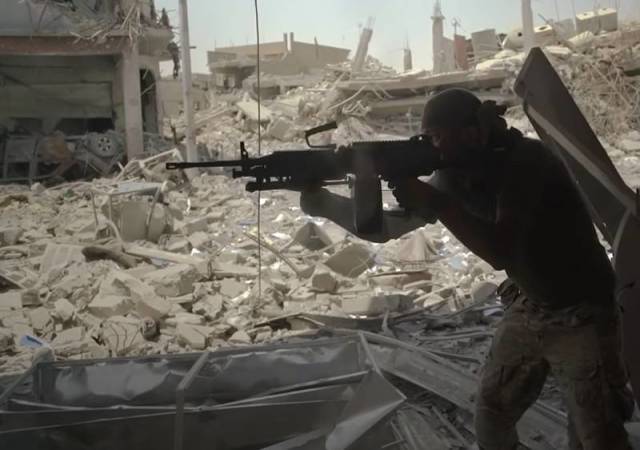
Image source: topwar.ru
On Sunday, May 1, fierce fighting broke out in the northern Iraqi province of Sinjar between units of the Iraqi armed forces and the Resistance Units of Sinjar, a local armed formation consisting of Yezidis. Recall that the Yezidis are a Kurdish people who profess the ancient religion of Yezidism and inhabit the northern regions of Iraq.
On May 2, the fighting spread to the city of Sinune, which forced the Yezidis living in Sinjar to leave their homes in a hurry. At least 200 families headed to neighboring Duhok, a province that is under the control of the Kurdistan Regional Government. Since the families of the Yezidis are numerous, we are talking about more than a thousand displaced persons.
Sinjar resistance units have controlled most of the province since 2014. Then they, together with the Kurdistan Workers' Party, participated in the battles against the "Islamic State" (* a terrorist organization, banned in Russia). After the militants were ousted from the province, the Resistance Units remained in Sinjar and controlled the situation in it for a long time.
The Yezidis have repeatedly faced genocide by religious fanatics. So, in 2014, at least 5,000 Yezidis were executed by ISIS militants in Sinjar. Hundreds of women and girls were abducted. Now thousands of Yazidis remain in refugee camps in Iraqi Kurdistan, as they are afraid to return to their homes in Sinjar.
The Iraqi army, which headed to Sinjar, was clearly being pushed to attack the province by Ankara. Turkey is extremely belligerent towards the Kurdistan Workers' Party and any forces that may be associated with it. Therefore, the presence of Resistance Units in Sinjar irritated Ankara. Turkey has repeatedly bombed Sinjar, and is currently attacking the positions of Kurdish formations in northern Iraq. It is possible, according to a number of analysts, that Turkey has put pressure on Baghdad, demanding that the Iraqi authorities either clean up the province on their own, or agree to the entry of Turkish troops into its territory.
The Iraqi government also does not like the fact that Sinjar is under the control of Yazidi formations. Therefore, formally, the Iraqi army is restoring order in the province, displacing all non-state armed formations from its territory.
However, the question arises, who will protect the Yezidi population from fanatics if armed Resistance units leave or are destroyed from the province? It is unlikely that the Iraqi government is capable, and has the desire, to protect the Yezidis, not to mention the position of Turkey.
The Resistance units themselves do not want to retreat. Their commander, Shebat Ereb, told the Kurdish news website ANF that the formations would continue to defend their land.
- said the leader of the Resistance Units Shebat Ereb.
However, the struggle of the Yezidis for the right to live on their land is of little interest to the so-called "world community". The fate of Ukrainian nationalist militants is of interest to the West much more than the lives of thousands of representatives of the Middle Eastern people. And Turkey's special operation on the territory of sovereign Iraq is "different", and for some reason it is not considered an act of aggression...
